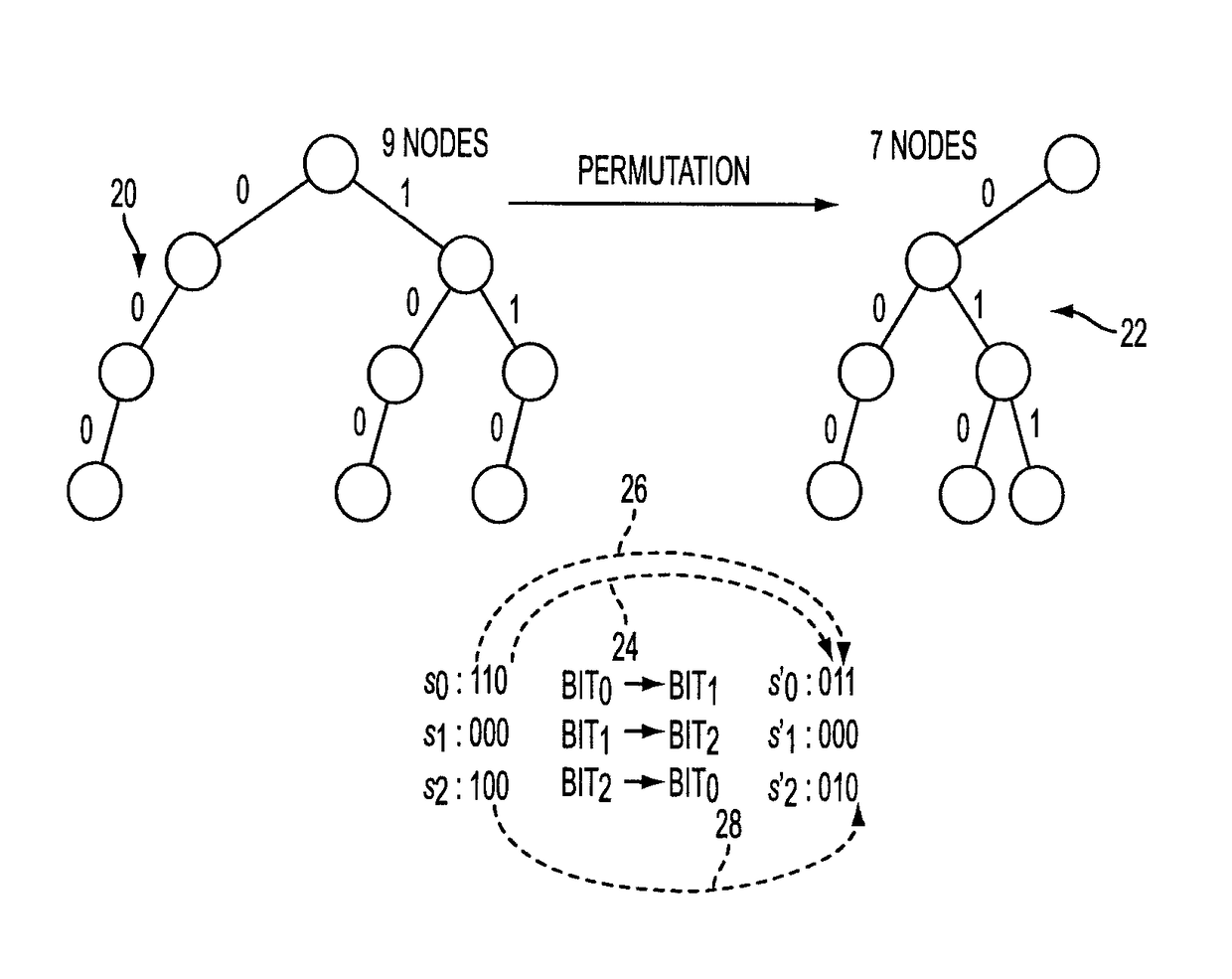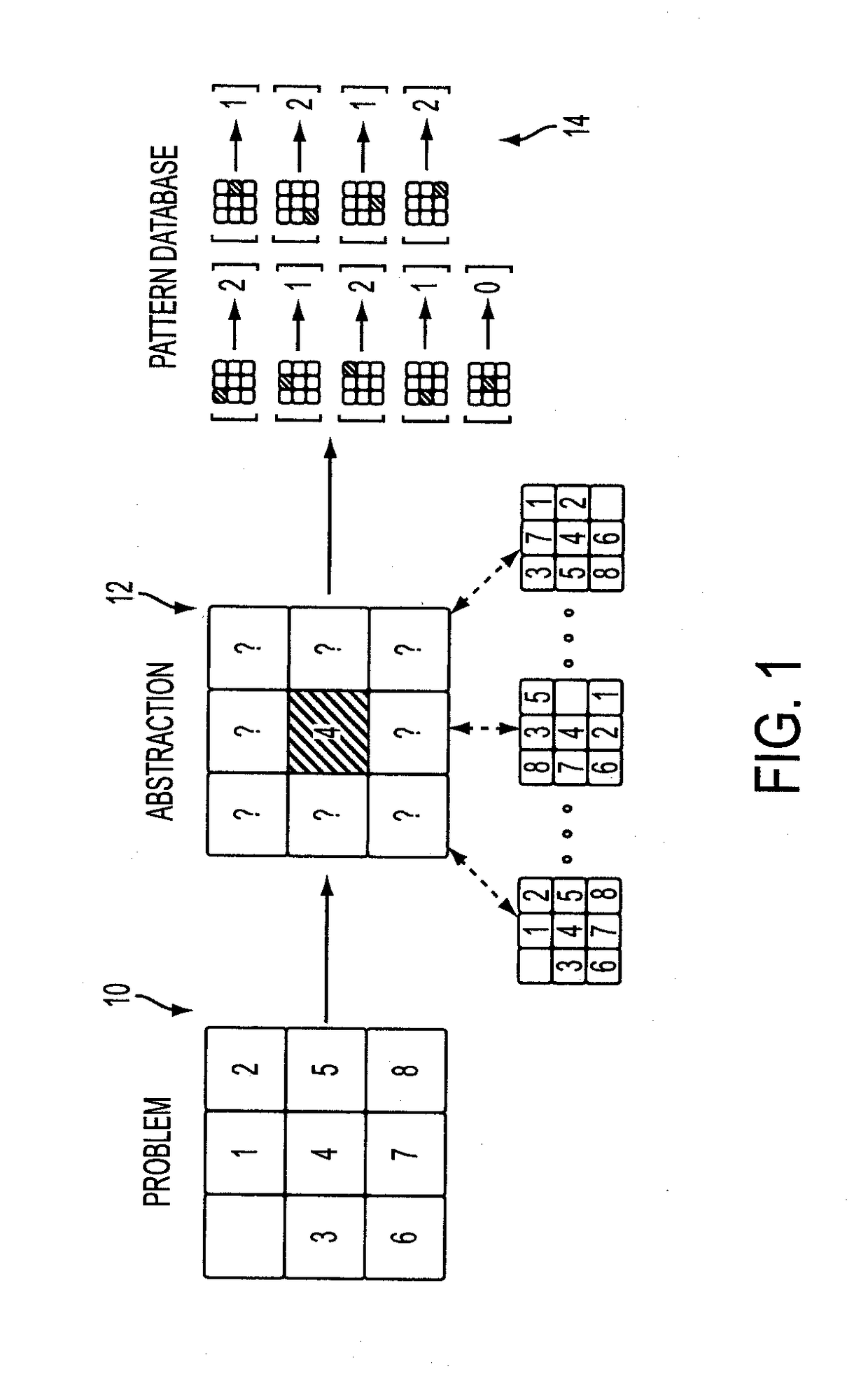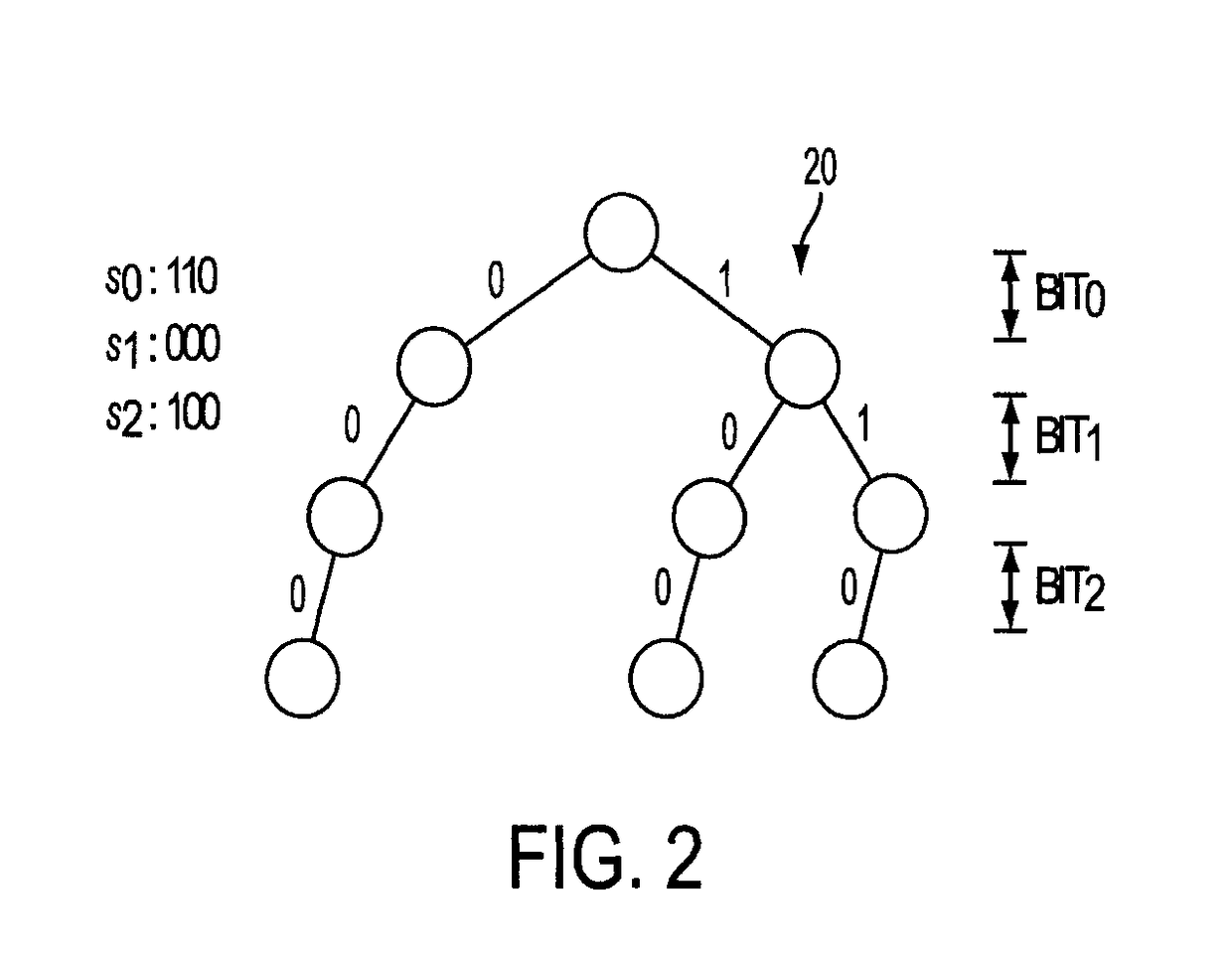System and method for compressed level-ordered edge sequence encoding
a level-ordered edge sequence and compression technology, applied in the field of system and method for compressed level-ordered edge sequence encoding, can solve the problems of exacerbated problems, unfavorable, and subsequent consequences of memory requirements
- Summary
- Abstract
- Description
- Claims
- Application Information
AI Technical Summary
Problems solved by technology
Method used
Image
Examples
Embodiment Construction
[0042]It should be appreciated that the presently described embodiments may have wide application in various technological fields and industrial applications. For example, without limitation, the presently described embodiments may be applied to exploit dynamic programming and other memorization techniques in domain-independent planning, or to enhance and / or implement other planning environments, software model checking routines (e.g. model checking to debug software code), and / or search routines (such as searching in a network of nodes).
[0043]For brevity and clarity, the presently described embodiments will be described in connection with pattern databases, but the ideas presented here transfer rather straightforwardly to other memoization techniques. The idea behind a pattern database heuristic is to first create a (relatively) easy-to-solve abstraction of the original problem. A suitable abstraction must be interpretable as a (usually not invertible) function mapping original pro...
PUM
 Login to View More
Login to View More Abstract
Description
Claims
Application Information
 Login to View More
Login to View More - R&D
- Intellectual Property
- Life Sciences
- Materials
- Tech Scout
- Unparalleled Data Quality
- Higher Quality Content
- 60% Fewer Hallucinations
Browse by: Latest US Patents, China's latest patents, Technical Efficacy Thesaurus, Application Domain, Technology Topic, Popular Technical Reports.
© 2025 PatSnap. All rights reserved.Legal|Privacy policy|Modern Slavery Act Transparency Statement|Sitemap|About US| Contact US: help@patsnap.com



